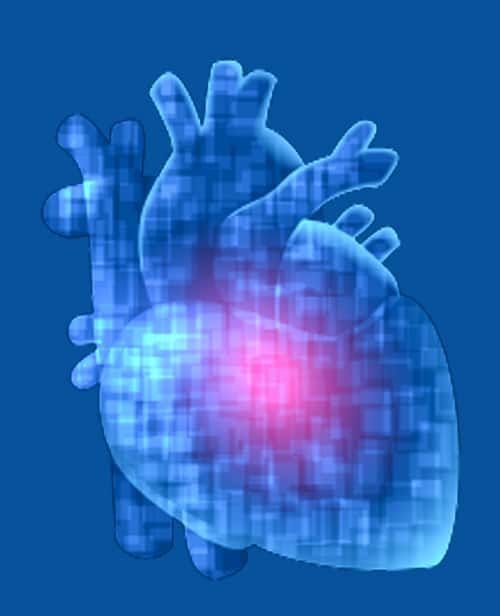
Cardiology
Cardiology is another branch of medical science that provides the diagnosis and treatments for diseases and disorders related to the heart and some parts of the circulatory system. This Department primarily aims to improve each patient’s heart condition, diagnose heart-related problems on time, and treat the problems with the best available treatments.

Cardiology
Being the best Cardiology Hospital in India, we offer an all-inclusive program to manage heart diseases, be it treatments like Angioplasty, Coronary Artery Bypass Surgery, or Angiography. We at Asian Hospitals bring together world-class resources, talents, and capabilities in the areas of Cardiothoracic, Vascular Surgery, Cardiac Rehabilitation, and Cardiology Hospital in India. We efficiently help the patients with best-in-class cardiac treatments and meet the demand of a growing number of patients possessing cardiac ailments in India.
The Cardiology Department’s infrastructure at Asian Hospital is made with just one end goal: providing immediate utmost heart care in the best time possible. Besides, our cardiology department is fully equipped with Cardiac OPDs and experienced cardiologists. We additionally have non-invasive labs, 2D /3D Echo, TMT, Holter monitoring, HUTT, Cardiac Pre-cath and post-cath, and Flat panel digital cath labs. We truly understand the value of each second, and that is why our experienced cardiologists and staff member are always active 24X7 to provide urgent heart care at the right time.
We strongly believe in a “Patient-centric” approach so that informed and evidence-based decisions are taken for every heart patient. Best Cardiology Hospital in India.

Our Services
- Angiography
- Angioplasty (Heart Stenting)
- Device closure
- Patent Ductus Arteriosus
- Ventricular septal defect
- Atrial septal defect
- Balloon valvotomy
- Tricuspid valve
- Pulmonary valve
- Mitral valve
- Aortic valve
- Electrophysiology study
- Pacemaker (permanent/temporary)
- CABG (Cardiac bypass surgery)
- Valve replacement
- Cardiac Catheterization
- Pediatric & Neonatology Cardiac services
- Congenital Heart disease – surgeries
- Pediatric & Neonatology Cardiothoracic services
The Procedures of Cardiology
Angiogram
During an angiogram procedure, a thin tube known as a catheter is kept into a blood vessel in the vein, femoral artery, or brachial artery. The catheter is directed to the area which needed to be studied, and an iodine dye is inserted into the vessel for a clear noticeable blood vessel on the X-ray. The entire method is called conventional or catheter angiogram. These X-rays can further be stored as pictures on the computer.
Electrocardiogram (ECG)
An ECG is performed to identify the reason for unexplained chest pain. A heart attack could bring this up. It likewise helps in discovering the cause for the symptoms of heart disease. The signs include dizziness, palpitations, and shortness of breath. Different uses of ECG are to discover the thickness of the heart walls, check if the prescriptions used to treat the heart are working appropriately, and check the ailment of the heart when other diseases are present.
Angioplasty
A slender plastic sheath is embedded into the artery, sometimes through the groin or the arm, and the catheter is gone through the sheath and guided up a vein and afterward to the arteries encompassing the heart. A limited amount of contrast dye is infused into the blood vessel through the catheter. The dye is utilized to get a crystal clear picture of the X-ray’s blood vessel when the blood travels through the blood vessel.
Pacemakers
Pacemakers are embedded during surgery. The implantation is performed by a specialist who practices in heart rhythm problems. Anesthesia will be given at the site of the incision. BP and pulse rate will be monitored throughout the surgery. The wires of the pacemaker are placed into your veins which will directly lead to the heart, and the opposite end of the wires is attached to the generator. The surgery takes about 2-3 hours to complete.
Technology
- Advanced Cardiac Cath Labs
- Dedicated Cardiac Operation Theatres
- External Counter Pulsation (ECP) for Refractory Cardiac Failure patients
- Cardiac Electrophysiology for managing Cardiac Rhythm Abnormalities
- Non-Invasive Cardiology Programme with Stress Test, 2D Echo, 128 – Slice Dual Source CT scan for CT Coronary Angiography and Nuclear Medicine Department

24-Hour Emergency
Round-the-clock emergency treatment for a broad spectrum of illnesses and injuries that can be life-threatening and require immediate attention.
Complete Lab Services
Achieving the highest standard of service to provide the most reliable results, nearest to the true value at most competitive rates.
Medical Professionals
Experienced teams with advanced technologies to keep you and your loved ones safe and healthy.
FAQs
Plaque grows thickens and stiffens artery walls, making it difficult for blood to flow through your arteries to your organs and tissues. Atherosclerosis is additionally the typical reason behind cardiovascular disease. It can be occurred by correctable issues such as lack of exercise, unhealthy diet, being overweight, and smoking.
Generally, the very first sign of Sudden Cardiac Arrest (SCA) is loss of consciousness. Simultaneously, no heartbeat can be felt. Some people might feel dizzy or light-headed just before they faint. Within an hour before SCA, some people have chest pain, shortness of breath, nausea, or vomiting.
Here are some of the healthy measures you can follow to have a healthy heart:
- Avoid tobacco altogether
- Eat healthy food
- Exercise toward a healthy heart
- Take your vitamins and supplements
- Go for regular checkups
- Get enough sleep

